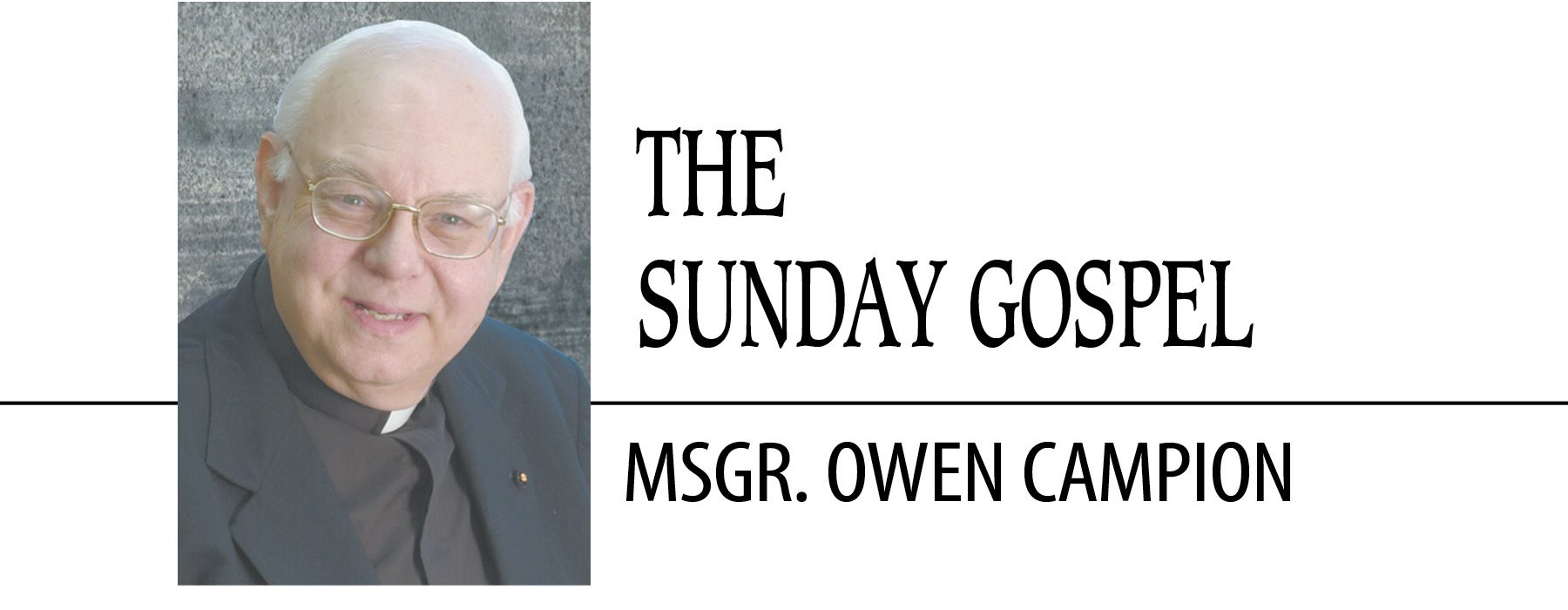November 2, 2019 // The Sunday Gospel
The Lord searches out and saves what is lost
Thirty-first Sunday in Ordinary Time
Luke 19:1-10
The Book of Wisdom provides this weekend’s first reading. An essential component in ancient Hebrew belief, and contemporary Jewish thought as well, is that God is the Creator of all and the author of all life.
The emphasis by Pope Francis on the dignity of each person and upon the natural environment directly reflects this ancient belief.
Wisdom was written, however, in a world awash in Greek philosophy. Enveloping Greek philosophy was Greek mythology, which saw gods and goddesses as beings: powerful, but with distinctly human characteristics. These divinities were thought to have control over nature. They could also be very human: spiteful, hardhearted and quarrelsome among themselves.
Furthermore, in Greek thinking, humans could use or misuse nature and the things of nature as they wished. Wisdom called pious Jews living among Greeks to remember the ancient Jewish outlook on natural life as a creation by God.
For the second reading the Church offers a passage from the Second Epistle to the Thessalonians.
Individual human dignity, and indeed nature itself, are God’s loving gifts, but they are the ends of it all. The greatest of God’s gifts to us is Jesus. The Lord became human, as are we, in the mystery that theologians call the incarnation. Through the incarnation, through the redemption accomplished by Jesus on Calvary and in the resurrection, and by accepting God’s gift of faith, we gain the supreme result of the gift of Jesus. We gain life eternal with God.
Constantly, the Pauline epistles summoned Christians, such as the faithful Thessalonians, to realize the wonder and greatness of God’s gift of Jesus.
Quite realistically, the Pauline epistles, and this reading in particular, remind believers that the path through earthly life is rough and crooked, beset with dangers and alluring detours. We therefore must be resolute in our determination to search for God.
For its last reading the Church gives us a selection from St. Luke’s Gospel. The Lord was on the way to Jericho, an ancient city not far from the Dead Sea that is mentioned in several dramatic Old Testament passages. Jericho still is a city seated at the foot of the great Judean mountains, a virtual oasis in a stark and lifeless terrain. It was and is a place of security in the forbidding Jordan River valley and Judaean wilderness. In truth, however, Jericho offered no enduring security.
Zacchaeus was wealthy, but Luke’s Gospel sees wealth as a burden. The poor are closer to God. Why? They are unencumbered. They are free.
Additionally, Zacchaeus was a tax collector, a disgusting occupation among the Jews. Nevertheless, Jesus, the Lord of life, freed Zacchaeus from his sins and gave him genuine security.
Climbing the tree, on the part of Zacchaeus, teaches us two important lessons. Despite all his wealth, he was subject to the simple obstacles confronting everyone. He could not see through, or over, others. Zacchaeus desperately wanted to see Jesus, realizing that wealth offered him no lasting satisfaction. Zacchaeus made the effort to see Jesus.
Reflection
Soon the Church will close its liturgical year. On the weekend following, it will lead us into a new year of worship and reflection. But before the new year, it will call us to close this present year in a mood profoundly hopeful and thankful.
Hopefully, in Jesus, we have found what Zacchaeus sought. Life and peace are in Jesus. When we have found Jesus, we have found hope, and we give thanks because we are one with God, in Jesus. The key to finding Jesus is in accepting Jesus, without compromise, without pause.
As Son of God, Jesus is king over all. He is Creator, Good Shepherd, our everything.
This weekend’s reading points us toward the feast of Christ the King, the great celebration closing this year.
The best news. Delivered to your inbox.
Subscribe to our mailing list today.






